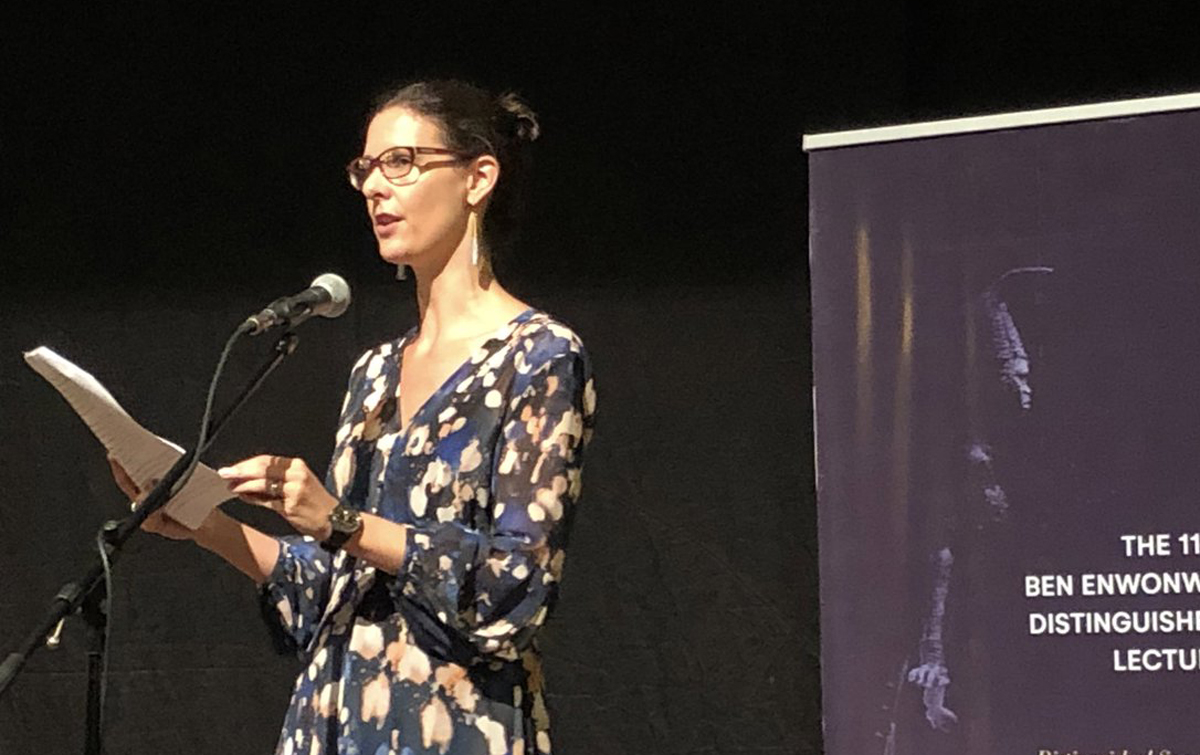Mrs Harriet Thompson, British Deputy High Commissioner in Nigeria, has called on Nigerians to give more respect and recognition to both formal and informal caregivers in the country.
SEE ALSO: COVID-19: NESREA Releases Guidelines for Handling Infectious Wastes
Thompson made the appeal on Thursday during a Webinar an online programme with theme: “Carers Week 2020”, organised by the British Deputy High Commission’s Office in Lagos.
She said that objective of the webinar was to mark “Carers Week”, being celebrated in UK every year, particularly now when the world was struggling with the impact of COVID-19 pandemic.
“This year we want to mark it in Nigeria as well, in order to recall the important role professional health workers and informal carers play in supporting the society through this really difficult times,” Thompson said.
According to the Envoy, being a carer is not widely recognised in Nigeria as an official responsibility.
She noted that it was mostly attributed to the African family structure, where family members were obligated to cater for their old, disabled or mentally challenged family members or relatives.
According to Thompson, this explains why Nigeria does not have a lot of care homes.
“It is important to celebrate all those who have taken up these extra responsibilities as a result of COVID-19.
“It is essential that we encourage informal carers during this COVID-19 pandemic to continue to ensure that older family members and those with underlying health conditions are protected from exposure to the virus.
“Also, doctors, nurses and other aspects of the health industry in Nigeria who have worked tirelessly since the outbreak of the Coronavirus should be appreciated.
“We urge Nigerian Government to adopt this initiative and create a special day to celebrate carers in the country,” she said.
On the role of informal and formal carers in Nigeria, Dr Chinwe Ochu, Deputy Director, Research, Training and Knowledge Management of NCDC, said that the outbreak had made it a very challenging period for carers and the country as a whole.
According to Ochu, in most cases informal caregivers are now first responders as most patients would have been staying at home before getting tested for the virus.
“They are responsible for helping family members who are infected to self isolate and also provide necessary care for them at distance as the virus is transmissible,” Ochu said.
She said for formal carers, the pandemic had also been a huge learning process for them, noting that most times the number of cases were more than they could handle.
Ochu noted that another challenge faced was the shortage of Personal Protective Equipment (PPE) for the workers to wear while attending to patients.
The deputy director said that a lot of health workers had also contracted the virus, while treating patients.
She said that more priority should be given in terms of safety for formal and informal carers.
The Chief Medical Director, Lagos State Teaching Hospital, Prof. Adetokunbo Fabamwo, said that this period had been a challenging time for most health workers.
“It has been a very tough time for health workers, because we need resources to work and most times there are still complaints on inadequate Personal Protective Equipment.
“The nurses, who are formal carers, are also scared to go too close to patients for the fear of getting infected.
“As we speak, a lot of our health workers have been infected by the virus in spite of the fact that we take universal precautions and wear Personal protective equipment,” Fabamwo said.
Also, Dr Josephine Okechukwu, Director, Public Health Department, Federal Capital Territory, said that a lot had been done in Abuja in terms of tackling COVID-19 pandemic.
“Currently, we are faced with some challenges, but the response to COVID-19 has been very good, FCT has the highest testing rates,” Okechukwu said.

